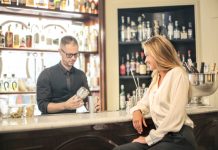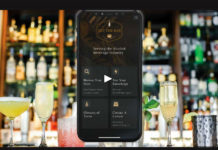Former Chief Counsel for the United States Alcohol and Tobacco Tax and Trade Bureau Robert M. Tobiassen has released a new report, “The ‘Fake Alcohol’ Situation in the United States: The Impact of Culture, Market Economics, and the Current Regulatory Systems,” at the Center for Alcohol Policy (CAP) Seventh Annual Alcohol Law and Policy Conference in Chicago, Illinois.
As part of a panel on “Counterfeit Alcohol: A Global vs. United States Perspective,” Tobiassen described the study’s analysis of “the numerous incidents of fake alcohol products in countries around the world that are routinely reported in the news media, government announcements, social media, and medical and scientific literature with the resulting deaths, social unrest, and marketplace disruptions, among other adverse outcomes.” In contrast, the study documents few such incidents reported in the United States.
Tobiassen outlined the reasons for the few incidents of fake alcohol products in the United States identified in the study, including “a strong cultural respect for the rule of law and lack of corruption in governance,” along with “strong regulatory systems that police the production, importation, distribution and retail sales of alcohol beverages through independent parties” and the country’s “competitive marketplace that provides alcohol beverages at all price points including inexpensive yet safe (in a quality control context) alcohol beverages thereby negating the demand for fake alcohol (except for moonshine).”
The report notes that public policy makers must balance competing goals and develop intervention tools that offset the social harms associated with the availability of low-cost alcohol beverages, combat the distribution of fake alcohol products and prevent a corrupt illicit production and trade marketplace.
Click here to download the full report.
The Seventh Annual CAP Alcohol Law and Policy Conference continues Friday, September 5, at the Hyatt Chicago Magnificent Mile in Chicago, Illinois. Additional details regarding the conference agenda can be found at www.centerforalcoholpolicy.org. For live updates from the event, follow @AlcoholPolicy on Twitter using the hashtag #CAPLaw.
In related news, The Center for Alcohol Policy is pleased to announce that Oklahoma Alcohol Beverage Laws Enforcement (ABLE) Commission Director A. Keith Burt is the recipient of the Second Annual Leadership in Alcohol Regulation Award.
The award, which recognizes the work of alcohol regulators who oversee the alcohol industry and promote public safety, was presented yesterday evening by CAP Advisory Council member and former Arizona alcohol regulator Jerry Oliver at the Seventh Annual Alcohol Law and Policy Conference taking place at the Hyatt Chicago Magnificent Mile in Chicago, Illinois.
“The Center for Alcohol Policy understands that alcohol regulators are the front lines of many great initiatives in the states aimed at keeping the alcohol industry properly regulated, promoting public health and safety and supporting a healthy business marketplace,” Oliver said. “This award highlights effective best practices that may serve as examples to alcohol regulators in other states.”
“Keith Burt‘s tireless energy, creativity and dedication to community outreach makes him stand out from the pack,” Oliver continued. “He is possibly the longest serving state alcohol regulator in the country, having started at the ABLE Commission as an accountant in 1980, yet he humbly works every day to advance the interest of Oklahomans. He has risen through the ranks to become director and always celebrates the work of the staff at the ABLE Commission. He has been a driving force in the 2Much2Lose (2M2L) efforts to prevent underage sales in Oklahoma.”
Oliver added, “Keith Burt oversees 60,000 licenses and oversaw tremendous changes in Oklahoma regulation brought about by ‘liquor by the drink’ implementation and tobacco enforcement – all while the number of employees has shrunk. One of his greatest initiatives is weekly sending ABLE agents into grade schools, high schools and college campuses in an effort to be proactive and enlighten our youth on the life-changing consequences of alcohol abuse.”








